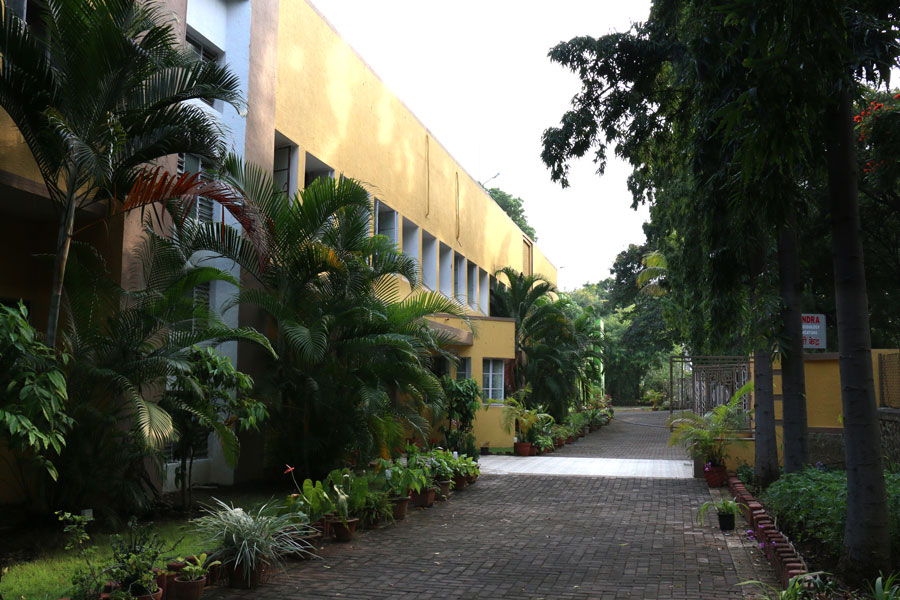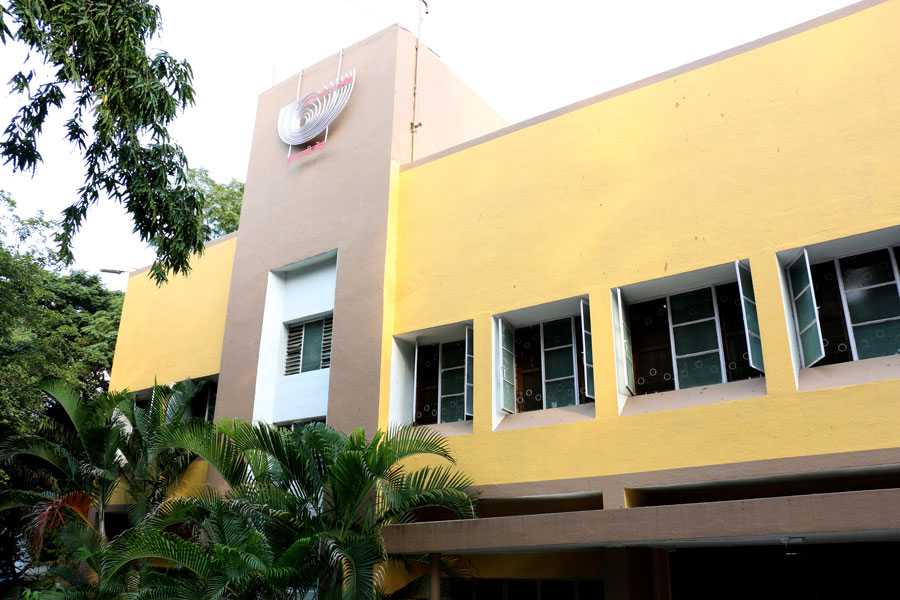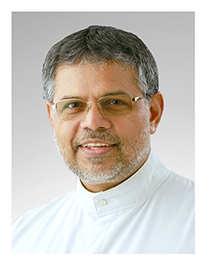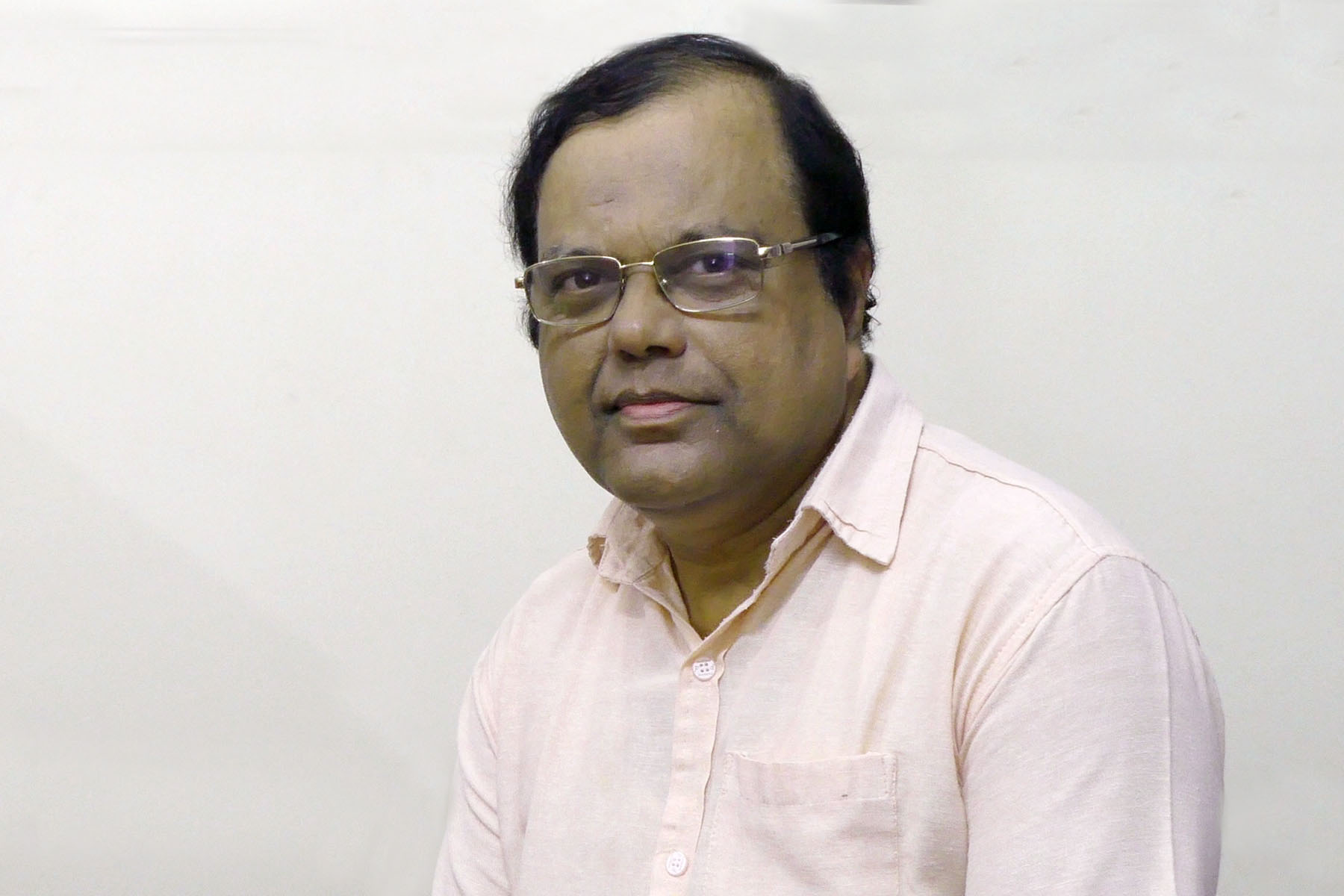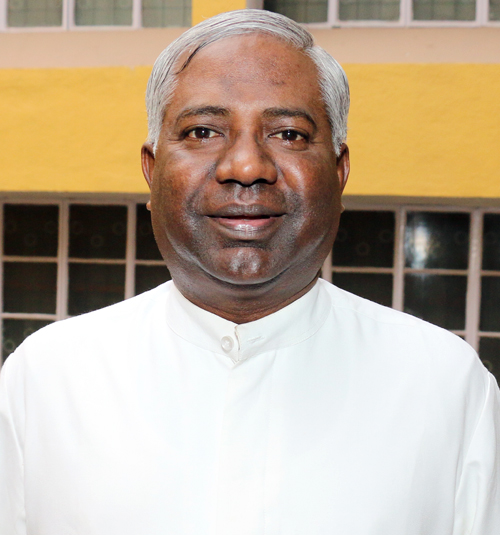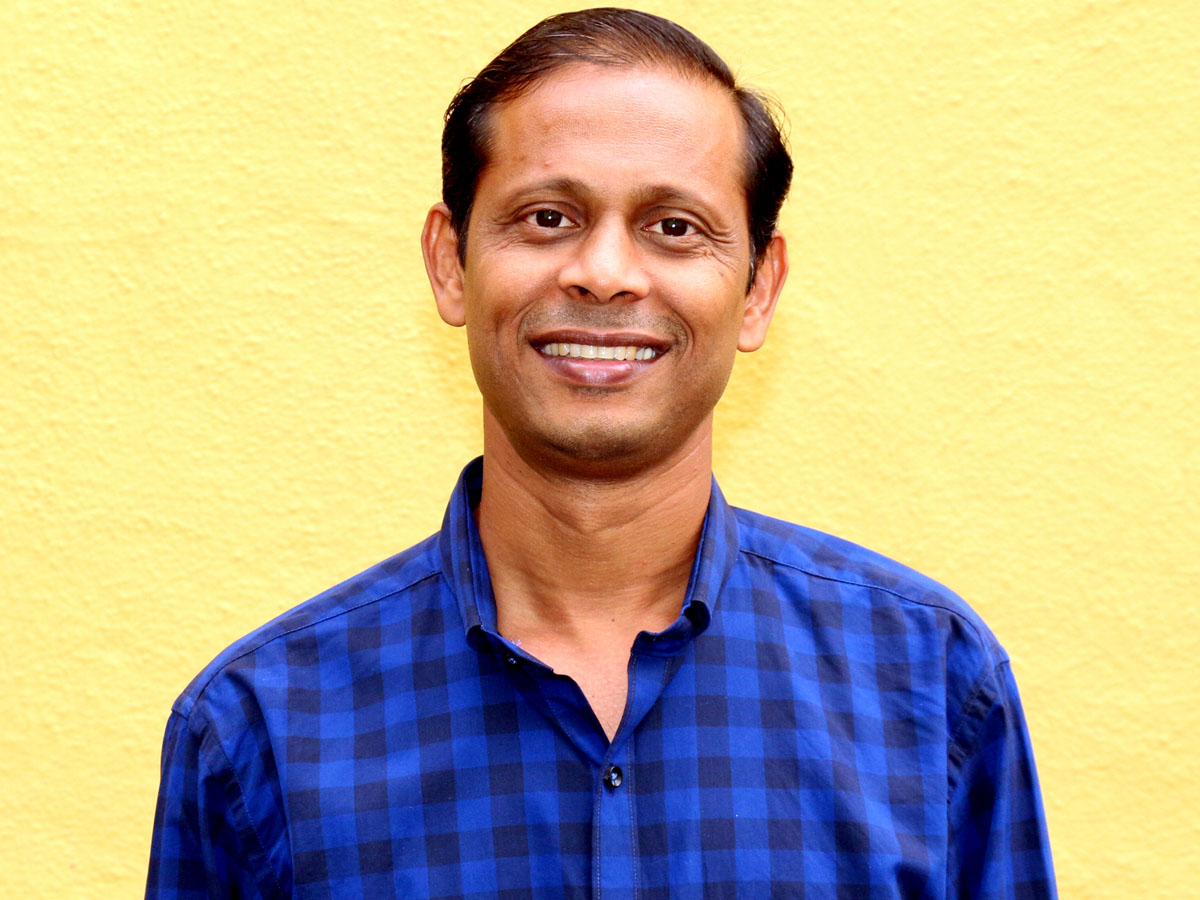Welcome to Ishvani Kendra
The highly symbolic and evocative name of the centre captures a good deal of the original vision that motivated and empowered its founder. Both the components of the name are etymologically linked to Sanskrit language symbols. Ishvani—itself a combination of two words that signify two of the rudimentary realities of all religious experiences—means “Word of God”. Kendra is translated as “centre”. “Ishvani Kendra”, therefore, means ‘Centre for the Word of God’. As an Institute of Missiology and Communications, Ishvani Kendra has a certain claim to uniqueness. It is the only one of its kind in India, perhaps also on the entire Asian scene, to reflect upon and deepen the understanding of the concept of evangelisation, and communicate the Good News effectively.
In the ultimate analysis, the task that Jesus entrusted to his followers was the task of giving wider and wider amplification to the Word of God personified through him and made tangible in his life and message. If this is understood as the irreducible kernel of the Christian missionary enterprise, one can easily see how Ishvani Kendra by fulfilling the task it has designed for itself remains fully wedded to the cause of evangelisation.
1. The Beginnings
The beginnings of the centre can be traced back to the mid-seventies. Fr. Englebert Zeitler, a great visionary of the Indian church, after having ensured a sure footing for the National Vocation Service Centre, turned his attention to the area of mission studies and research which he felt was suffering from gross neglect for far too long. This he saw as distressing especially when considered against the background that ever since the beginning of the modern missionary movement, India had been a scene of intense evangelising activity. Being a member of the Society of the Divine Word, a religious congregation which considered the work of evangelisation as its raison d’être, Fr. Zeitler felt convinced that it was precisely the area in which he as an individual and his religious institute should make a lasting contribution. Ishvani Kendra was born of this realisation.
While continuing to be on the staff of the Divine Word Seminary, his congregation’s scholasticate in Pune, he made the first moves towards realising his dream of a missiological institute. The earliest stirrings appeared in the form of skeletal library specialising on topics related to evangelisation and religious and social communications which began to take shape already in 1975 in the space made available by the seminary. The actual inauguration of the project took place on 26 May 1976. Fr. Zeitler believed in wide-ranging consultations among different sections of the Church such as ecclesiastical authorities, theological thinkers and personnel in the field, before initiating any new venture.
The foundation stone of the building was laid on 6 January 1979, significantly on the feast of Epiphany. What is believed to have taken place on the day of Epiphany, according to him, formed the quintessence of mission. In a brief speech made during the function, Fr. Zeitler maintained that the occasion marked a turning point in the history of the Indian church. The structure for which ground was broken then, he averred, would eventually lead to the dismantling of innumerable structures, both really and metaphorically. In his characteristically hyperbolic style the widely acclaimed missiologist was referring to the future task of the institute that he was founding. According to him, it would serve as the nerve centre of revolutionary thinking in the field of evangelisation.
2. The Original Vision
Ishvani Kendra functions as a hub of radical new thinking and action, providing inspiration, coordination and assistance in the work of evangelisation to the missionary personnel labouring in the far flung areas of India and to some extend in the scattered pockets of Christian presence in the Asian continent. The founding father had learned a considerable lot as FABC Mission Secretary and from the many years of exposure he had to the mission reality of India. Fr. Zeitler knew that the re-interpretation of the mission mandate enjoined by Jesus on his followers is a never-to-be-finished task. It was the duty of the succeeding generations of Christians to translate Jesus’ command into meaningful propositions and viable models of action. This task, he realized, could not be left to individual theologians and innovative missionaries working in isolation. The need of the hour was to give an institutional framework to the effort of the Asian Church to collectively reflect upon and deepen its understanding of evangelisation. The lack of a forum for a creative exchange of ideas concerning the mission scene was adversely affecting the spread of the Good News.
An authentic approach to mission will not go far without effective methods of communication, surmised Fr. Zeitler. Powered by this seminal realisation he designed the centre’s task of promoting study and research in the field of Missiology and dissemination of fresh ideas to be complemented by the work of a professionally run Communications Department. As soon as the institute moved in to its own premises the work of setting up a well-equipped communications department was initiated. Today video albums-VCDs & DVDs for prayer and reflection are regularly produced and published on Ishvani Day, which is fixed for Mission Sunday, every year.
3. Areas of Involvement
The centre carries out its fundamental aim of mission and missionary animation through an array of programmes and activities. The facilities at the centre include conference halls, a well-maintained library, a documentation department, a fully equipped communications department with the state-of-the-art sound-recording and video-editing equipments, and a tastefully designed chapel. A separate building which functions as a hostel provides accommodation to the participants of its residential courses and seminars.
3.1. Courses and Seminars
The main activity of the institute consists in conducting short-term courses and seminars on topics of relevance to mission and communications. The mission of the Church in the new millennium, mission orientation for those assigned to overseas destinations, mission orientation for formators, media education for teachers and animators, mission-oriented spirituality for evangelisers are some such topics. The participants of the various programmes express themselves very positively both about the contents and the methodology and frequently speak in glowing terms about the rich learning experience that the centre provides.
In recent years the centre is moving towards solidarity movements for peace organising National Colloquiums annually to respond adequately to the instances of violence, terrorism and fundamentalism that threaten the very fabric of Indian unity, diversity, pluralism and democracy. There is a compelling need more than ever for all the Church in India to join hands and work together in solidarity with leaders of all religions and ideologies.
3.2. Communication Department
The communication department functions as a production and training centre for religious and social communications. Besides offering digital film-making courses, the department regularly produces audio-visual material that is helpful for evangelisers and educators. Audio and Video albums-VCDs & DVDs containing audio-visual meditations, instrumental music and devotional songs in many of the Indian languages such as Hindi, Marathi, and Telugu which the centre puts on the market are often in high demand. The sound recording and video editing facilities of the centre are made use by many individuals and groups looking for professional ambiance and quality production.
3.3. Library and Documentation Department
The library is one of our much sought after facilities. It contains about 36,000 volumes on topics related to mission and communications. The main focus is on mission theology, mission history, mass media, world religions, feminist ideology, tribal and dalit thinking and sociology. Over a hundred scientific journals linked to a wide variety of specialised fields are regularly subscribed to. The library’s computer maintains a periodically updated mass of bibliographical data and its printout is made available on request to researchers.
The documentation department collects and classifies research material on a number of topics of relevance to both the secular and the religious field. Clippings from newspapers and periodicals are collected and filed under several general categories that are further divided into numerous sub-sections. Researchers find the information extensive and easily retrievable. Newsletters and publicity material from other research centres, reports and statements of missiological consultations and theological seminars are also stored and made available for consultation.
3.4. Research Seminars
Ishvani Kendra also conducts research seminars on missiologically significant topics from time to time. The aim of such efforts is to bring together people from the academy and the practitioners of innovative mission methods in the field to reflect on the contemporary challenges faced by the Church’s mission. On the occasion of the Great Jubilee 2000, for instance, the institute organised a research seminar entitled 'A Vision of Mission for the New Millennium'. The event brought together a formidable body of religious and social thinkers who spent nearly four days deliberating on the various challenges faced by the Christian mission in India. The reflections were ably guided by the inputs given by three of the country's most outstanding scholars. From January 6-8, 2011 a National Consultation on “Indian Pluralism and Solidarity for a More Just Humanity” was organised by Ishvani Kendra. This Colloquium brought together over 100 participants from various faith traditions and ideologies – religious leaders, social activists and those working for peace. It has opened a new chapter in the mission of the institute, to work in solidarity with all. In continuity with this initiative an inter-religious satsang was organised on 16 December 2012 in the context of Christmas 2011, to discern signs of God’s presence and purpose in the world in a spirit of dialogue, which brought together people of six religious traditions and ideologies to reflect and pray together in order to promote peace and communion among communities. Its theme, RELIGIONS FOR PEACE, is the mission of every believer in India, as we encounter other cultures and religious traditions.
3.5. Publication
Publication is another area of the centre’s interest. It publishes a journal entitled “Ishvani Documentation and Mission Digest”. Designed as a scientific journal, it comes out three times a year. Each issue contains over a hundred abstracts of articles published in national and international reviews with full information of the sources appended to each abstract. Scholars and students find it a valuable tool of research as it introduces them to the latest literature in numerous fields. Every month the institute publishes ‘Mission Scan’ with the latest mission news, reflections, statements and new publications on mission, and reaches friends and well wishers all around the world through e-mail.
3.6. Extension Services
The institute also provides extension services to dioceses and religious congregations looking out for resource persons to conduct renewal programmes. Staff members of the centre are involved in teaching at the Jnana Deepa Vidyapeeth (JDV), formerly known as the Papal Athenaeum, and situated in the same campus. The Programme Coordinator of Ishvani Kendra is also the Coordinator of MTh Programme in Missiology at JDV. While the students of JDV make extensive use of the institute’s library, the staff members provide them guidance in writing papers.
3.7. Collaboration with the National Bishops' Conference
As a centre for mission and missionary animation, Ishvani Kendra has been trying to explore every possible avenue to lend a helping hand to the Church bodies, particularly the Catholic Bishops' Conference of India (CBCI) and the Conference of the Catholic Bishops' of India (CCBI), in their efforts to refurbish the missionary image of the Indian Church. One of its former Directors, Fr. Augustine Kanjamala SVD, had been the secretary of the Commission for Proclamation and Communications for a long time. This Commission has been conducting a number of consultations and seminars at the institute with the active collaboration of its staff. Besides, the institute had in the past years undertaken surveys and studies related to mission at the request of the Bishops' Conference and individual bishops.
Through its various programmes and activities Ishvani Kendra, thus, continues to fulfil its crucial task of providing inspiration, coordination, and assistance to the missionary movement in India and to a limited extent to the Christian community in Asia. Its website: ishvanikendra.com is regularly updated announcing its annual programmes and publishing relevant mission material for study and research.

